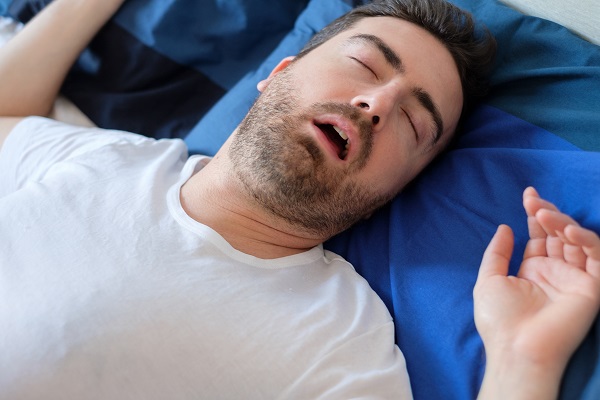Different Dental Appliances for Sleep Apnea

Obstructive sleep apnea is a condition that leads to interrupted breathing during sleep due to a blocked airway, causing a person to stop breathing multiple times throughout the night. According to sleepapnea.org, an estimated 22 million people in the U.S. suffer from the condition, though a majority of them go undiagnosed. There are several treatments available, including surgery, continuous positive airway pressure machine, and dental appliances. For people with mild to moderate OSA, mouth devices provide substantial benefits.
What are the options for dental appliances?
Dental appliances are fitted to the user. They are effective in reducing the potential for sleep apnea by maintaining an open airway. There are two categories of mouth appliances:
Mandibular advancement device
This dental appliance is used more often than tongue retaining devices. A MAD is constructed to fit the lower and upper arches and snaps over the top of the teeth. There is a hinge that connects the two sections. Wearing this appliance keeps the airway open, maintaining normal breathing as it pushes the lower jaw and tongue forward a little.
Tongue retaining device
A tongue retaining device may be suitable for those whose mouth or jaw structure makes it difficult to reposition the jaw. This device works similarly to a MAD, except that there is no component that slips over the teeth. Instead, the appliance uses the force of suction to keep the tongue in a forward position, preventing it from sinking back into the upper throat.
What are the benefits of dental appliances?
For those with mild to moderate sleep apnea, dental appliances offer an effective alternative to surgery or CPAP machines. They are particularly useful for people who are back or stomach sleepers. There are several benefits to using mouth devices for preventing airway obstruction during sleep.
Improvements in sleep quality
Using a dental appliance lowers the frequency of sleep interruptions and snoring, both of which diminish sleep quality. Individuals may find they get a better night’s sleep when wearing mouth devices. It is important to note, however, that devices need to be properly fitted to the individual user to be effective.
Ease of use
Oral devices are easy to use. The simple design means that there are not a lot of pieces to keep track of or connect. This increases the likelihood that people use them more consistently. It is also beneficial for those who are active sleepers, as these devices are not easily knocked off from tossing and turning during sleep.
Comfort
Most people discover that their dental appliance is comfortable to wear. As such, consistency in use is improved. This also reduces the potential for adverse short- and long-term health effects from sleep apnea. Regular and consistent use leads to less irritability and daytime drowsiness as well as increased concentration.
Conclusion
Dental appliances are an effective option for people with mild to moderate sleep apnea. If you have been diagnosed with OSA, consult with a sleep specialist and dentist to find out if they are the right choice for you.
Request an appointment here: https://artisandentalbellevue.com or call Artisan Dental at (425) 454-2005 for an appointment in our Bellevue office.
Check out what others are saying about our dental services on Google: Do I Have Sleep Apnea in Bellevue, WA.
Related Posts
Continuous positive airway pressure (CPAP) machines have been one of the main ways of treating sleep apnea, but in recent decades, successful CPAP alternatives have emerged. In this review, we discuss the best CPAP alternatives to consider.CPAP machines are often reported as being awkward, ineffective, and hard to travel with. The good news is that…
Sleep apnea is a significant sleeping problem that may cause severe sleep disturbance. It might potentially cause other health problems if left untreated. Fortunately, a general dentistry professional can provide treatment options. Oral appliances and other breathing equipment are two therapy options for sleep apnea.Although it may seem weird to visit the dental office for…
Sleep apnea is a potentially serious condition in which your breathing starts and stops repeatedly during sleep. It is fairly common and fortunately, it is also treatable. If you think you are dealing with sleep apnea, it is important to obtain a diagnosis and get treatment so you can avoid severe side effects of the…
When getting decent sleep becomes challenging, it is time to consider seeing a sleep apnea specialist. Read on to learn about the signs of sleep apnea. High blood pressure, heart disease, stroke, diabetes, and certain headache syndromes can all be exacerbated by untreated apnea. However, many people are not aware that they are dealing with…









